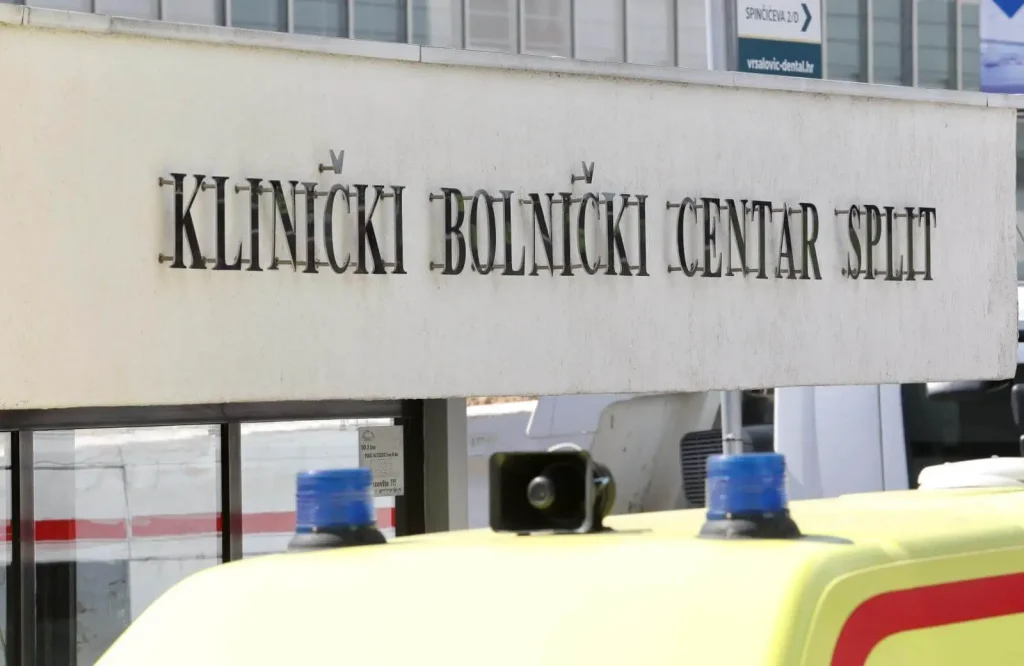In ten days, all employees in the health system and those who are not hospital employees but work within the hospital, and employees in homes for the elderly and infirm will be able to work only by presenting a Covid certificate. In particular, they will have to present a document proving that they have been vaccinated, have overcome COVID-19, or have been tested.
However, how this will be controlled is still unknown, as the legal services of the Ministry of Health and the Ministry of Labor and Pension System have not yet completed the instructions. Two questions are key: how will testing be organized and how will those who refuse to test be penalized?
As Jutarnji List unofficially finds out from several Zagreb hospitals, everything is ready as far as the organization is concerned.
Hospitals have testing points, and they have enough tests. Jutarnji also learned that the hospital plans to decentralize the verification of certificates, i.e., that the confirmation of the covid status of employees is not done in one place (hospital entrance) but at the entrances to individual departments, and the head nurses of the department will most likely be in charge. There are several reasons for that.
First of all, it would not create crowds in one place. In addition, the head nurse of the department knows all the employees and easily distinguishes them from the patients. Once they have checked the covid status of the employees, in the next few days, they will know which of them have been vaccinated and which needs to be tested, and the vaccinated will not have their certificates checked daily. The situation is also facilitated by the fact that hospital employees were among the first to be vaccinated in an organized manner in their institutions. It is more or less known who was vaccinated.
In the health care system, about 70 percent of the total number of employees have been vaccinated, and some have overcome COVID-19, so the organization itself should not be a problem. In addition, per department, there would be relatively few people to check daily.
And while hospitals are ready as far as internal organization is concerned, they have not yet received instructions from the authorities on what to do with employees without covid-confirmation if they refuse to test.
That is precisely what the lawyers are currently working on, and although the sanction will certainly not be a dismissal, the question of how to penalize it is still open. The same rules will apply to both health and social services, but when the document is ready is unknown, although it should take effect in ten days. According to the information Jutarnji has, it was said that it would be ready by yesterday. Still, the latest information says that the document with all the administration instructions should arrive today or tomorrow.
Another open issue is the expiration of covid certificates. As health and social workers were a priority, they were vaccinated first, in early January. However, their covid certificates begin to expire in mid-October, meaning that 15 days after introducing the certificate, 70 percent of those vaccinated in healthcare would be left without a certificate and would be required to be tested like the unvaccinated.
As a solution, Minister Vili Beroš last week announced possibly extending the validity of the certificates from the current nine to 12 months.
As for the revaccination, it seems that for now, there will be none of that. Namely, the US Food and Drug Administration (FDA) has given guidelines that only those over 65 and immunocompromised should be vaccinated with the third dose. On the other hand, the European Agency (EMA) has not yet made a decision. Allegedly, the Croatian Institute of Public Health has already decided to extend the duration, and it should come into force this week.
What do we know so far?
1. What will happen to health care workers who have not been vaccinated or have had COVID-19?
– They’ll have to be tested every three days. Initially, the system will pay for their expensive PCR tests, but, according to the announcements, they will have to bear those costs themselves after a while.
2. How will employees without a covid-certificate who refuse to be tested be punished?
– The competent Ministry has not yet agreed on possible penalties. However, it has been confirmed so far that the dismissal will not be among them. In neighboring countries, such employees are suspended and do not receive a salary for the days of suspension.
3. Will the same rules apply to other public sector systems as for healthcare employees?
– For now, it is confident that the same rules will apply to social welfare employees, probably as early as October 1, as well as to the health care system. Education was also mentioned, but it is not planned yet.
For all you need to know about coronavirus specific to Croatia, make sure to bookmark our dedicated COVID-19 section and select your preferred language.









